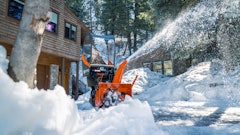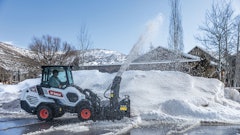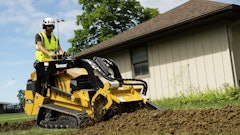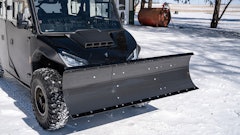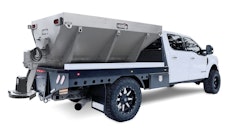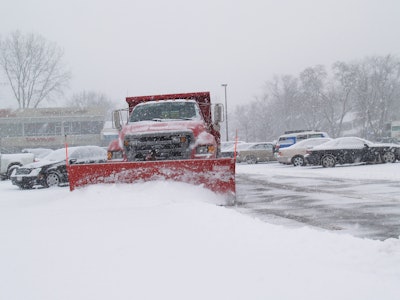
While the tame winter of 2011-2012 caught many snow removal contractors by surprise, historical data of winter cycles shows that this type of thing has happened before. Thus, last season also taught contactors that there is an important business side to the snow removal business.
There may be seasons where you don't even get enough snow to generate the cash flow necessary to operate your business. That's when cash reserves come in real handy. But, unfortunately, contractors often don't have them.
Look at last season. Many snow removal contractors were so excited about the previous winter (2010-2011) that they spent all of their “windfall profits” on fancy new equipment. Some genuinely felt like they needed more, or newer, equipment. Others simply wanted to show off how successful they'd been.
Why do contractors constantly fall into this trap? They confuse cash flow with profit.
The snow removal division of your business has to be run just like any facet of your operation. Whether you run one truck or numerous pieces of equipment, you need to have a strategic plan for this portion of your operations. That plan must encompass financial management, the proposal process, operations and job costing.
Develop your budget
First of all, you need to make sure that your annual budget has a section devoted to your snow work. The budget will force you to determine how much revenue is needed to pay overhead, as well as the necessary cash flow to pay your direct costs during snow storms. Material, labor, equipment rentals and subcontractors need to be paid in a reasonable amount of time.
Once you determine the amount of snow revenue that needs to be generated over the winter months, you can then evaluate how realistic that amount is. To some degree, this exercise can be relatively simple:
- Look at historical data for your region to determine how many snow events you have over a given period of time
- Break these down by 1-, 3-, 6- and 12-plus-inch storms
- Also estimate the number of ice events
This will allow you to take the contracts that you have and break them down to see the potential revenue that can be generated. This budgeting process will also allow you to evaluate your estimating process. In other words, are you charging enough to pay your bills? If you are, great. If not, you need to evaluate your operation and ask what you can do to become more profitable.
Develop your backup plan
I used the words potential revenue in the above paragraph. That's because there are no guaranties that this will occur. That's why you need a backup plan that taps into several tactics.
Cash reserves. First of all, you should have some savings to carry you through in the event that things do not turn out as planned. Depending on the size of your operation, you should deposit a budgeted sum of money into a savings account on a weekly basis. A “payroll check” to savings should be written and direct deposited into a special account. Let’s call this your rainy day fund.
Line of credit. Try to obtain a line of credit from your bank (if you don't already have one in place). This also takes planning. You cannot run into the bank for a loan when you are already running out of money. You need to set this up in advance.
Manage costs. Implement good cost-side management, because it's vital to adequate cash flow. Look at ways to reduce your expenses over the winter months. A percent here or there adds up over a period of time.
Here are a few examples of areas where you likely could trim costs:
- Insurance
- Managing labor costs through the use of automated recording devices
- Materials – seek out several sources and team up with fellow contractors to purchase in larger quantities
- Overhead – find ways to reduce these costs based on the seasonality of your business.
Equipment is another good place to look. Do you really need to own all that you do? In some instances, renting equipment or the use of sub-contractors can greatly reduce your cost structure and allow you to remain competitive. Sometimes your over-priced bid is because your overhead is out of balance. The use of subs or rental equipment will help you eliminate fixed costs which will allow you to operate more efficiently.
It's very simple
Without a sound budget, you will run the risk of burning through cash. Before you know it you are out of money. Without sound financial planning, you run the risk of jeopardizing everything you have worked for.
I helped numerous contractors this last spring who failed to plan for the tame 2011-2012 winter—and were nearly put out of business as a result. Remember, if you use up all of your cash and any line of credit over the winter months, you will not have the funds you need to operate the following spring.
In other words, make the same management commitment to your snow removal division as you do to the rest of your operation. You'll be glad you did—in good times, and especially the bad times.

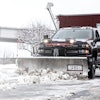
![Gravely Pro Turn Mach One My23 Dsc03139 Edit 1200x800 5b2df79[1]](https://img.greenindustrypros.com/mindful/acbm/workspaces/default/uploads/2025/10/gravely-pro-turn-mach-one-my23-dsc03139-edit-1200x800-5b2df791.BucBnDoN22.jpg?auto=format%2Ccompress&fit=crop&h=100&q=70&w=100)
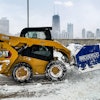

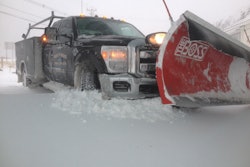
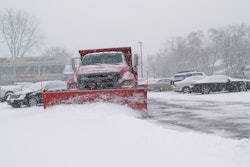

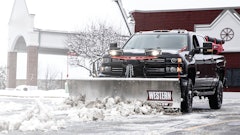
![Gravely Pro Turn Mach One My23 Dsc03139 Edit 1200x800 5b2df79[1]](https://img.greenindustrypros.com/mindful/acbm/workspaces/default/uploads/2025/10/gravely-pro-turn-mach-one-my23-dsc03139-edit-1200x800-5b2df791.BucBnDoN22.jpg?ar=16%3A9&auto=format%2Ccompress&fit=crop&h=135&q=70&w=240)
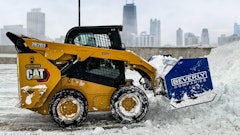

![Kubota Snow ah3 Sgv25ua[1]](https://img.greenindustrypros.com/mindful/acbm/workspaces/default/uploads/2025/10/kubota-snowah3sgv25ua1.bAUoUSziui.png?ar=16%3A9&auto=format%2Ccompress&bg=fff&fill-color=fff&fit=fill&h=135&q=70&w=240)

